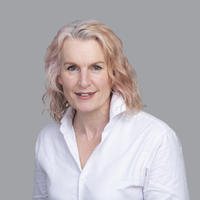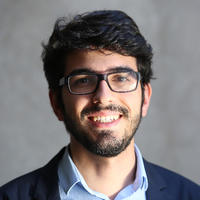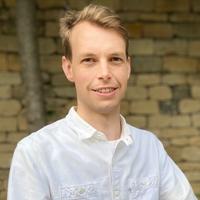ANNEXE (Academia-Defence Knowledge Exchange)
Professor Marina Jirotka (Lead Researcher) and Dr Carolyn Ten Holter (Engagement Fellow), Department of Computer Science, partnering with The British Army.
Reflecting on the Fellowship, Dr Carolyn Ten Holter said: 'This engagement will strengthen the links between Defence and academia, helping to map existing relationships focused on knowledge exchange, and ensuring multidisciplinary approaches to challenges.'
|

Dr Carolyn Ten Holter
|
Bridging the Net Zero Ambition and Implementation Gap through Procurement Policy and Practice
Led by Thom Wetzer, Kaya Axelsson, Emma Lecavalier for the Net Zero Policy and Regulation Hub, Smith School for Enterprise and the Environment, School of Geography and the Environment, partnering with incoming Engagement Fellows, Mr Eduardo Spanó, Instituto Jataí, and Ms Agata Meysner, Climate Action Network Europe.
Engagement Fellow Agata Meysnor said: 'This fellowship provides an invaluable opportunity for a collaboration between academia and civil society, focusing on the role of public procurement in driving systemic transformation.' Eduardo Spano said of the Fellowship: 'This collaboration between our organisations will make meaningful progress towards our shared ambitions to embed sustainable governance within public procurement processes, advancing Instituto Jataí's mission to transform public procurement into a powerful tool for innovation and sustainable development in Brazil.'
|

Agata Meysner, Climate Action Network Europe

Eduardo Spanó, Instituto Jataí
|
Social outcomes partnerships in fragile and conflict-affected states: A policy tool for systemic change?
Dr Eleanor Carter (Lead Researcher) and Dr Harry Bregazzi (Engagement Fellow), Government Outcomes Lab, Blavatnik School of Government, partnering with UK Foreign, Commonwealth and Development Office.
Responding to his Fellowship, Dr Harry Bregazzi said: 'I'm thrilled to be a Social Science Engagement Fellow. Our partnership with government will develop research-informed policy resources, and we ultimately hope to help make development programmes in fragile states more effective.'
|

Dr Harry Bregazzi
|